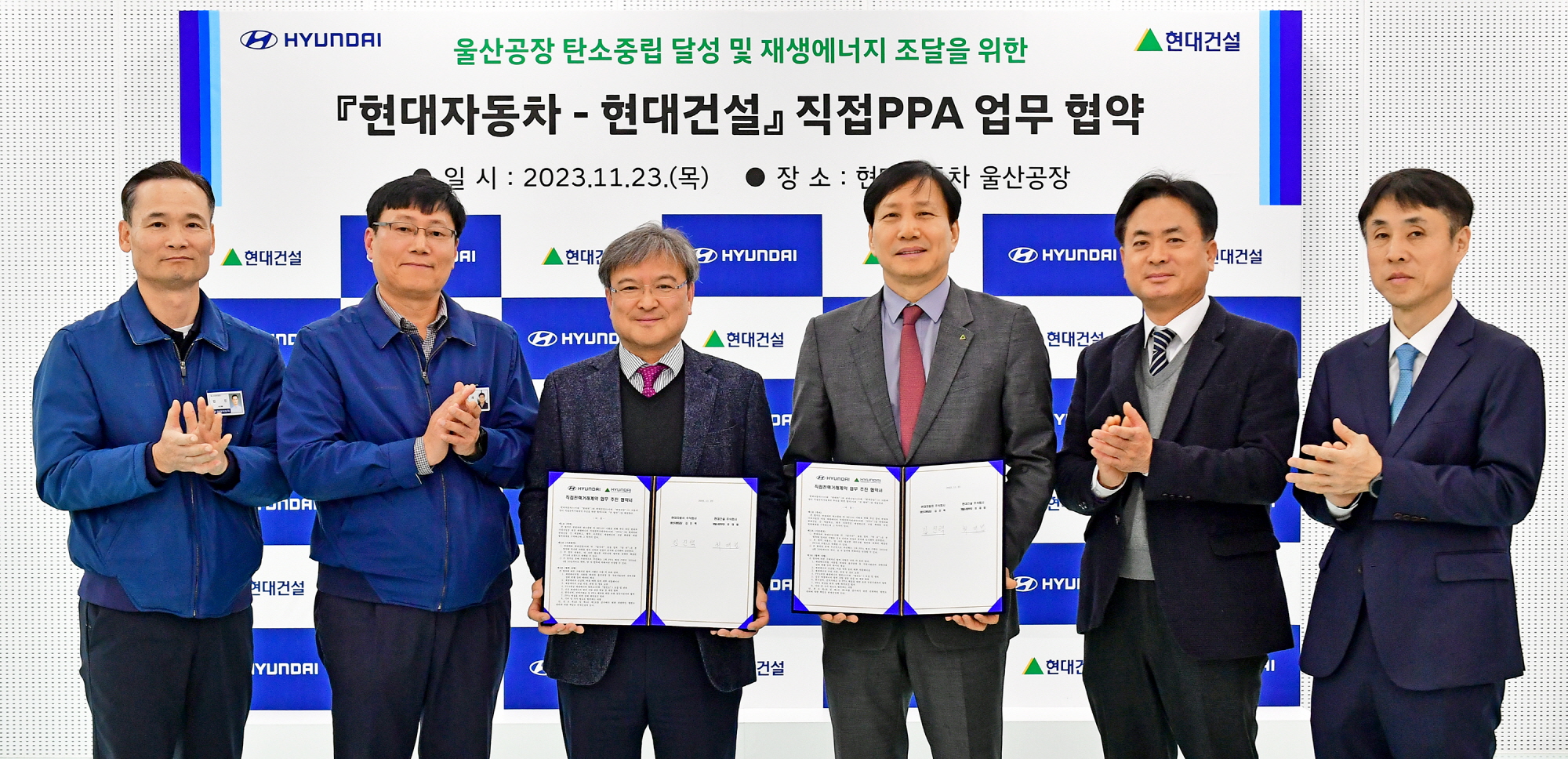
Hyundai Motor is taking significant steps to achieve carbon neutrality and meet its RE100 (100% renewable energy) goals.
On the 23rd (Thursday), Hyundai Motor signed a Power Purchase Agreement (PPA) with Hyundai Construction for solar renewable energy at its Ulsan plant. Key figures present at the agreement ceremony included Kim Jin-taek, Executive Vice President of Domestic Production Support at Hyundai Motor, and Choi Jae-beom, Executive Vice President of the Development Division at Hyundai Construction.
A PPA is a system where electricity consumers purchase renewable energy from renewable energy generation companies, and it is the most widely used method to implement RE100. The benefit of this approach is that it allows for the stable procurement of renewable energy over a long period.
Through this PPA agreement, Hyundai Motor plans to procure 64 MW (megawatts) of solar renewable energy for its Ulsan plant by 2025, expecting to reduce approximately 39,000 tons of carbon emissions annually. This effect is equivalent to absorbing carbon emitted by 23,000 midsize sedans traveling 15,000 km each year.
This agreement holds significant meaning for Hyundai Motor as it marks a serious commitment to achieving its RE100 goal by 2045. RE100 means using 100% renewable energy and is a campaign promoted by the global nonprofit organization The Climate Group and the global environmental management certification body CDP (Carbon Disclosure Project), advocating for the complete transition of corporate power consumption to renewable energy by 2050.
Previously, Hyundai Motor received approval to join the RE100 initiative alongside three affiliated companies, including Kia, Hyundai Mobis, and Hyundai Wia, in April last year. Hyundai has set a plan to use 100% renewable energy by 2045, which is five years ahead of the global RE100 target of 2050, and is speeding up the transition to renewable energy at both domestic and overseas plants.
In addition to the PPA implementation method, Hyundai plans to invest over 200 billion KRW to establish solar self-generation infrastructure at its domestic sites by 2025, with a goal to cover 60% of energy used at all domestic and overseas plants with renewable energy by 2030.
For each business site, Hyundai plans to achieve 10% renewable energy use by 2025 and 30% by 2030 at its domestic plants by building solar self-generation facilities on unused land and rooftops of its domestic sites. Based on this investment, the plan is to secure over 150 MW of solar self-generation and more than 300 MW through PPA by 2030.
Overseas plants aim for 100% renewable energy use by 2030. Depending on geopolitical factors and renewable energy environments at each site, a diversified portfolio will be established, including self-generation, PPAs, and purchasing Renewable Energy Certificates (REC).
In fact, Hyundai’s plants in the Czech Republic and Indonesia completed achieving 100% renewable energy use through REC purchases last year and this year, respectively, while plants in the USA, India, and Turkey are increasing their share of renewable energy usage, aiming for RE100 by 2025.
A Hyundai official stated, “We will proactively respond to climate change through the stable supply of high-quality renewable energy power and will fully commit to the transition of renewable energy at our domestic sites,” adding, “We will demonstrate our commitment to carbon neutrality management by establishing solar self-generation facilities.”
Lee Sang-jin daedusj@autodiary.kr